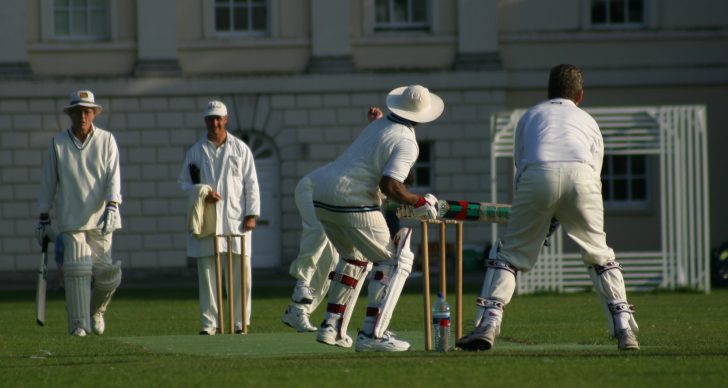”Stop studying, we’re playing cricket.”
What is the rational response to this statement from the student with an exam tomorrow who is fully aware of the long term financial, psychological and social value of a successful education?
The correct answer is of course ‘no’. But what did I say when I was a student? “Yes, excellent idea”. Why did I make such a short-term, ill-considered and irrational decision to abandon my studies? The answer lies in the rapidly growing field of behavioural economics.
Behavioural economics is a wide ranging discipline, incorporating elements of psychology and sociology, that seeks to apply real life, typically irrational, behaviour choices into traditional economic and policy making models. Traditionally economic and policy making models have applied the assumption that people are entirely rational decision makers. This is self-evidently a false assumption. Knowing that people make irrational choices gives the opportunity to design policies that encourage and prompt desired behaviour outcomes. At its heart is the notion of two systems of thought process and decision making: system 1 and system 2.
System 1 is fast, instinctive, emotional and sub-conscious.
System 2 is slow, effortful, logical, calculating and conscious.
We instinctively prioritise system 1 approaches to decision making as it is easier. System 2 requires effort and concentration and the will to ignore the easy solutions being suggested by system 1.
When my friends asked me to play cricket instead of studying my system 1 instinctively took over. I made an instant decision that the immediate pay-off from having fun was more valuable than the long term results from studying. Students are required to balance the competing demands of ensuring they invest enough time in their education which requires significant up-front costs for tangible benefits only realised in a distant horizon, with distractions such as games, media, socialising and food which all have instant pay-offs.
These trade-offs are universal. For every dedicated student who knows what they want to be and the effort they must sustain to realise that ambition there is another student, potentially just as proficient, for whom studying is a constant battle against other interests. A battle between system 1 and system 2 thinking[1].
Behavioural economics is yet to be fully explored in an educational context but how might we harness system 1 vs system 2 thinking to improve results in the classroom? Below are just a few areas/ideas for consideration
- Feedback loop
Hedonic adaption describes the process by which the impact on a person’s well-being from large events, be it positive (e.g. financial windfall) or negative (e.g. bereavement) levels off over time and returns to a stable baseline. Applied to an educational context, the impact of continual positive learning experiences/feedback is greater than that gained from major events (exam results). Striving to improve and acknowledge achievements and improvements in learning will result in improved future performance, whereas waiting for results before feedback is offered will have very limited long term impact.
The feedback loop with students should focus on process above results. This could be achieved through recognition of performance rather than/as well as results. Give rewards to students with the best performance relative to expectations, or best effort as well as top performance awards.
Steven Levitt’s paper explores the impact of reward giving, both financial and non-financial, on student performance. He finds that awards should be immediate and can be maximised by using loss aversion i.e.taking something away which has already been given. This has a stronger impact on performance than post-event incentives.
- What’s in it for me?
The system 2 response to this question is obvious but how do you keep education relevant to system 1’s fluctuating attention span and propensity to bias decision making for short-term gains?
In Lisa Peter’s blog post she talks about ways in which to make Shakespeare interesting for students. You can substitute the word ‘student’ for ‘system 1’ and’ Shakespeare’ for any topic you like. Providing students with an international education which can be rooted in local context is an excellent platform for engaging with students.
Other important tools are a great work experience programme and alumni network. Work experience shows rather than tells a student what the real world requires and has to offer them in return. A well utilised alumni network can similarly demonstrate exactly what the result of a successful education can be.
- Study frameworks
Helping students develop the ability and discipline to learn is arguably as important as learning subject content.. Lauren Harris sums this up it in her blog post about language learning “it’s not necessarily the language per se that matters – it’s understanding how to learn a language that’s important. “
Study techniques can be as simple as getting students to print out a set of eyes to position above a place of study. It has been found that the psychological effect of feeling that you are being watched impacts positively on behaviour.
I’m sure your school is already doing some, if not all, of the suggestions above and I’d love to hear other ideas and strategies that you have tried. How do you keep students focussed on learning and long term future goals over short-term attention distractions?
Appendix:
Lavecchia , Adam M., Heidi Liu, Philip Oreopoulos. 2015. “Behavioral Economics of Education: Progress and Possibilities”. IZA Discussion Paper No. 8853.
Levitt, Steven D., John A. List, Susanne Neckermann and Sally Sadoff. 2012. “The Behavioralist Goes to School: Leveraging Behavioural Economics to Improve Educational Peroformance”. ZEW Discussion Paper 12-038
Ladley, Paul. 2011. “Gamification, Education and Behavioural Economics”.
[1] Kahneman, Daniel. 2011. Thinking, Fast and Slow. Macmillan. ISBN 978-1-4299-6935-2.





